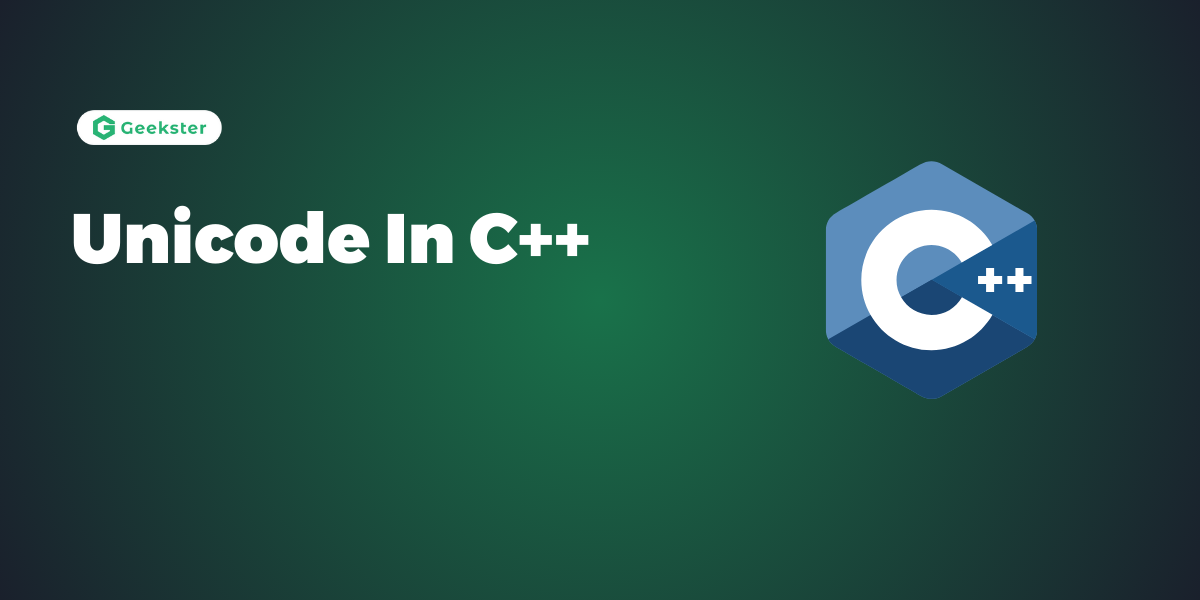Introduction
In today’s interconnected world, where communication crosses borders with ease, the ability to work with different languages and scripts is more important than ever. This is where Unicode steps in, acting as a universal language for computers and programming languages like C++. Just as people from different countries can communicate through a common language, Unicode allows C++ programs to handle and process text from various languages and writing systems seamlessly. Let’s explore the fascinating world of Unicode in C++ and see how it enables global communication.
What is Unicode?
Unicode is a universal standard that assigns a unique numeric value, called a code point, to every character used in written languages worldwide. Think of it as a massive dictionary that includes not only letters and numbers but also symbols, ideograms, and even historical scripts. With Unicode, characters from languages as diverse as English, Arabic, Chinese, and Greek can all be represented within the same program.
Why Unicode Matters in C++
C++ is a powerful programming language used for a wide range of applications, including those that require multilingual support. Without Unicode, working with text in different languages would be incredibly difficult, as different character encodings could result in garbled or incorrectly displayed text. Unicode solves this problem by providing a standardized way to represent and process text data, ensuring that C++ programs can handle global communication without a hitch.
Using Unicode in C++
C++ offers built-in support for Unicode through wide character types and Unicode string literals. Here’s a simple example:
#include <iostream>
#include <string>
int main() {
std::wstring hello = L"Hello, 世界!"; // Unicode string literal
std::wcout << hello << std::endl; // Output: Hello, 世界!
return 0;
}
In this example, we use the wstring type to store a Unicode string literal, which includes characters from both English and Chinese. We then print this string using wcout, the wide character variant of cout.
Unicode in Identifiers and Character Constants
C++ also allows Unicode characters in identifiers (like variable names and function names) and character constants. This is done using universal character names, which are prefixed with \u or \U followed by the hexadecimal code point value of the desired character. For example:
int 中文变量 = 0x4E2D; // Unicode identifier and character constant
std::cout << "Unicode character: " << 中文变量 << std::endl; // Output: Unicode character: 中In this example, we define an integer variable with a Chinese name and initialize it with the Unicode character constant for the Chinese character “中”.
Conclusion
Unicode unlocks a world of possibilities for global communication and multilingual applications. By adopting this universal standard, you can create programs that handle text from various languages and writing systems seamlessly. This means your software can reach a truly global audience. Whether you’re developing an app for international users, processing multilingual data, or just exploring the rich tapestry of global languages, Unicode is your key to connecting with the world. So dive in, and start making your C++ programs speak the language of global communication!
Frequently Asked Questions
Use wstring for wide strings and prefix your string literals with L, like L"Hello, 世界!". This lets you include characters from different languages directly in your code.
Ensure your source file is saved in UTF-8 format, use std::wcout for output, and make sure your terminal or console supports Unicode, like setting chcp 65001 in Windows.
Yes! The standard library provides basic support, and for more advanced needs, you can use libraries like ICU, which offer robust Unicode handling and globalization features.

